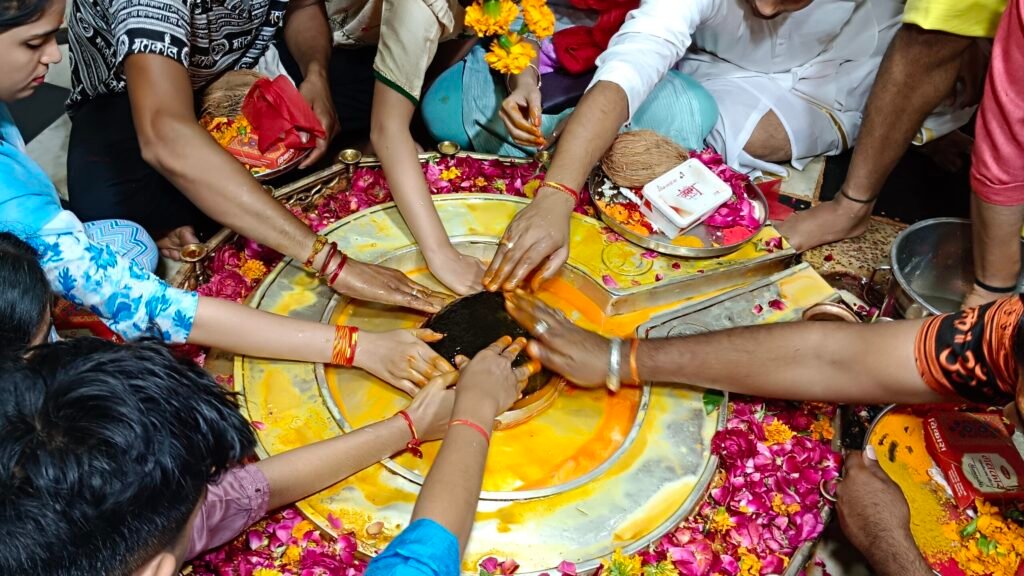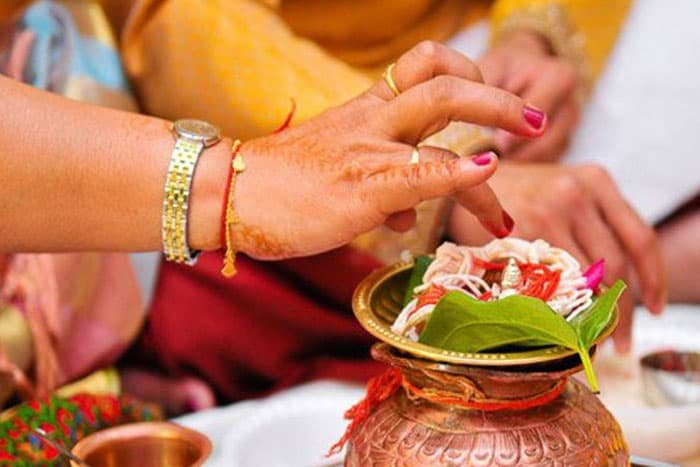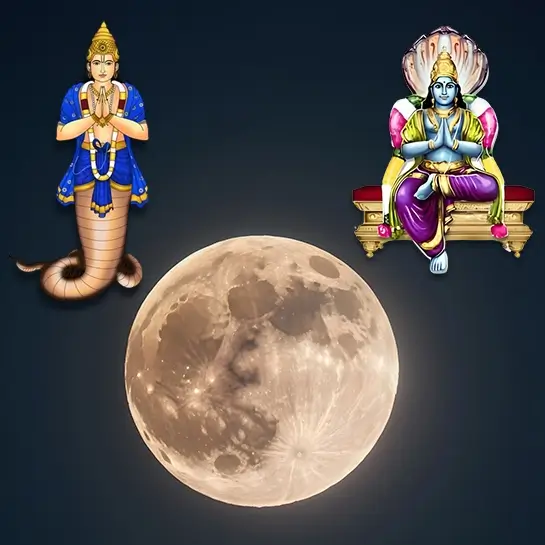
Pitra Dosh
Kaal Sarp Dosh
Kaal Sarp Dosh, in astrology, occurs when all planets in a birth chart are positioned between the shadow planets Rahu and Ketu. This configuration is believed to bring about various obstacles and challenges in different areas of life, such as career, relationships, health, and finance. It can also lead to mental distress and disturbing dreams.


Manglik Dosh
Manglik Dosha, also known as Mangal Dosha or Kuja Dosha, refers to an astrological condition where the planet Mars (Mangal) is positioned in specific houses of a birth chart. Specifically, it occurs when Mars is in the 1st, 4th, 7th, 8th, or 12th house. This placement is believed to have an influence on marriage and relationships, potentially causing challenges
Kumbh / Ark Vivah
Kumbh Vivah and Ark Vivah are Vedic rituals performed to mitigate negative astrological influences on marriage, particularly Manglik Dosh for females and Gandharva Dosh/Mangalik Dosh for males. In Kumbh Vivah, a symbolic marriage is performed with a kalash (earthen pot) for females to pacify Mars’s (Mangal) adverse effects. In Ark Vivah, the groom is symbolically married to an Arka (Calotropis gigantea) tree, believed to remove Gandharva Dosh and other negative influences.


Grahan Dosh
“Grahan Dosh” in English is known as “Eclipse Dosh” or “Eclipse Curse”. It’s a Vedic astrology concept that refers to a specific planetary placement in a birth chart, potentially leading to various challenges and obstacles in life.
